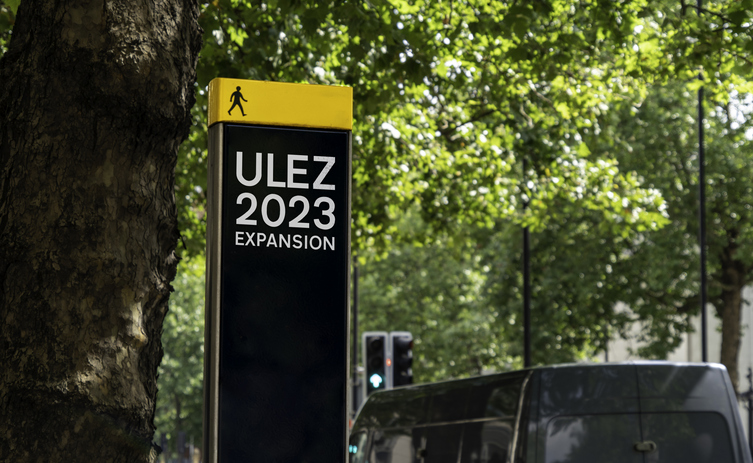The Mayor of London has unveiled a new policy on cars which risks further stifling enterprise in the capital and hitting the poor hardest.
Aiming to improve air quality in London, Sadiq Khan plans to expand the Ultra Low Emission Zone (ULEZ) to the Greater London boundary in August. Drivers whose vehicles do not meet strict emission standards will face a £12.50 daily charge, on top of the Congestion Charge, fuel duty and road tax already collected by Westminster.
The cost of relying on ULEZ
With fuel duty at 52.95p per litre (plus an additional 20% in VAT), these taxes are among the government’s most lucrative revenue streams. Motorists already face a crippling tax burden, and ULEZ will disproportionately affect Londoners on lower incomes who are more likely to have older cars, as well as small business owners such as builders and gardeners who rely on their vehicles for work.


ULEZ comes at a time when drivers are already under pressure to transition to electric vehicles. From 2030, there will be a ban on the sale of new cars that use petrol and diesel. To encourage motorists to transition, electric vehicles are currently not subject to fuel duty. The ban is forecast to leave an estimated £35bn gap in the Treasury’s coffers. Rather than implementing new road taxes to plug the gap, local and central governments could employ a few well-designed reforms to improve motorists’ experience and boost economic growth.
Road pricing is a better solution
The introduction of road pricing, also known as “pay-as-you-drive”, could be a fairer, more effective way to improve air quality and maintain government revenue without penalising motorists. This system would replace all existing road taxes by simply charging drivers for their road usage, adjusting prices to reflect supply and demand at different times of day.
Rush hour travel would carry a premium to discourage drivers who could travel at an alternative time from using the road. We see similar mechanisms in the energy market, with suppliers offering discounts to avoid usage at peak times. This simplified approach to road taxation would give motorists more control over what they pay, and it would result in quicker, cleaner journeys for everyone.
We currently pay to use the road network on a distance-travelled basis – through tax collected when we buy fuel. This system lacks a market mechanism to influence consumer behaviour. The cost of fuel and road taxes are the same no matter when we travel or the route we take. Therefore, there is no incentive to optimise our road use.
Encouraging efficient use of roads
On a busy weekday morning roads are packed with those who have no choice but to travel at that time: delivery drivers, parents on the school run, workers commuting to the office. Recreational motorists are more likely to join these commuters on the road when they don’t have financial incentives to deter them.
That leads to congestion, pollution and adverse health effects in areas prone to heavy traffic, all of which could be addressed through road pricing. Congestion hinders growth by slowing trade and business traffic. In times of squeezed public finances, we should promote growth by incentivising more efficient use of the road network.
The Campaign for Better Transport advocates road pricing, as does the Clean Air Fund, thanks to the plan’s potential to improve public health by reducing congestion and pollution. Mobile apps could be used to allow motorists to price different journeys and pay tolls automatically or top-up as drivers do to use the Tyne Tunnel.
The move to a greener economy is a welcome opportunity to reimagine road taxation and empower motorists. Replacing fuel duties and emission bans with road pricing systems would rely on the free market to moderate road usage and fuel emissions, enabling the individual to decide how much their journey is worth to them.
The Mayor of London and Westminster should both embrace this opportunity to apply powerful incentives that will generate revenue, improve air quality, and boost growth and wellbeing.
Daniel Patterson is a political commentator with Young Voices UK and a technology consultant with an interest in smarter public services. His writing has appeared in CapX and Law & Liberty. Follow him on Twitter: @DPattersonUK

